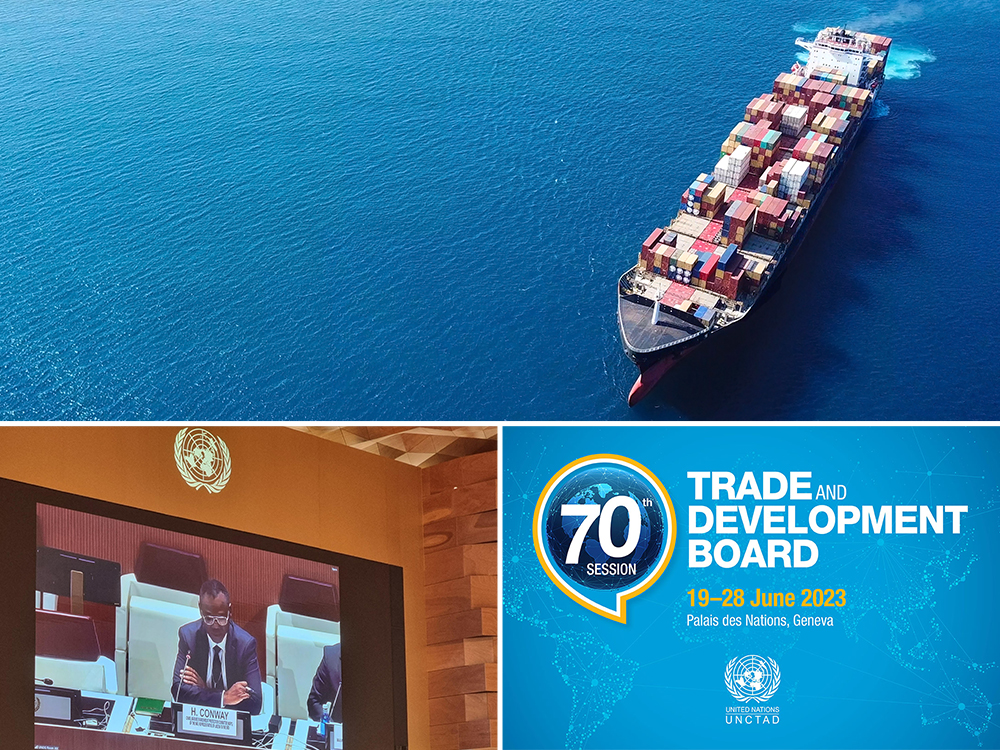Climate change impacts all sectors, including ocean-based sectors or the "blue economy". Decarbonization is crucial for the ocean economy's sustainability - offering both challenges and opportunities.
This was the focus for the United Nations Conference on Trade and Development (UNCTAD)'s High-level segment of the Trade and Development Board, seventieth session on "Decarbonization opportunities and challenges in the Blue Economy" (19 June).
Harry Conway, Chair, Marine Environment Protection Committee (MEPC) of the International Maritime Organization (IMO), Representative of Liberia to the IMO, provided input (speaking note) on the opportunities and challenges for maritime transport, and an update on IMO's work on decarbonization, as the IMO Member States gear up to adopt a revised GHG strategy at the forthcoming MEPC 80 session (3-7 July).
IMO works closely with UNCTAD on decarbonization matters, with UNCTAD providing relevant data and analysis on maritime trade and on port activity. In particular, UNCTAD supports the work on the assessment of possible impacts on States of proposed IMO greenhouse gas reduction measures, with detailed reports.
UNCTAD provides detailed statistics on maritime transport, including the annual Review of Maritime Transport. IMO co-organized with UNCTAD a side-event during COP 27 in Sharm-el-Sheikh (Egypt) on Opportunities for renewable marine fuels in developing countries.
